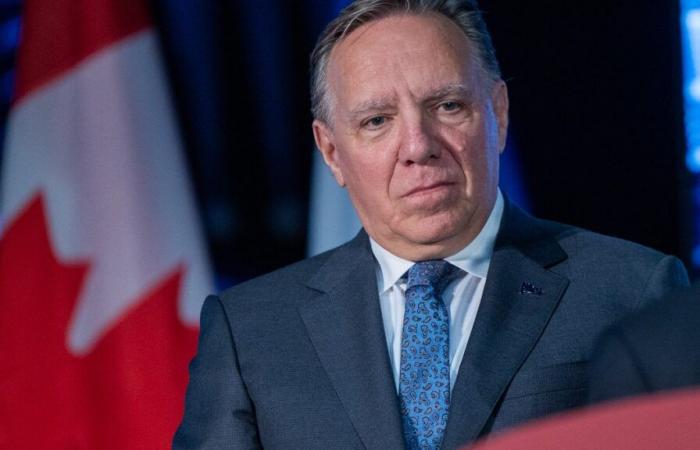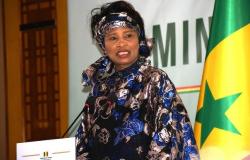Nothing is going well for François Legault’s troops, whose support has returned to a low not reached in eight years, according to a new Léger poll. Meanwhile, the Parti Québécois continues its rise.
• Also read: Chronicle by Rémi Nadeau | The infernal spiral of the CAQ
• Also read: Chronicle of Mario Dumont | Poll: with his worst result since 2016, Legault has lost the ear of Quebecers
• Also read: Trudeau and Poilievre neck and neck in Quebec, according to a Léger-Le Journal-TVA poll
• Also read: Quebecers dissatisfied with Trump’s election, according to a Léger-Le Journal-TVA poll
With 21% of voting intentions, the CAQ today has the same score as in spring 2016, two years before coming to power.
The CAQ government had begun a slight recovery during the summer, after reaching a first low in the spring, but its difficult parliamentary return brought it back to the starting point.
The satisfaction rate also fell by six percentage points, to 32%.
Empty passage
“The news has not been very positive for the government,” observes the executive vice-president of the Léger firm, Sébastien Dallaire. There is an impression that the files are not progressing or are progressing poorly.
Difficult, he said, to find positive elements these days for the CAQ troops.
Sébastien Dallaire adds, however, that the Legault government is not alone in this situation. “Across the West, governments in power are in a post-pandemic period. They have less money, it’s hard to manage, there are lots of problems to repair,” he points out.
More locally, the CAQ is struggling to get back on its feet since its electoral defeat in Jean-Talon last year and the about-faces that followed on the third link. “They have not managed to turn things around” beyond the summer lull, underlines the pollster.
The PQ benefits
As has been the case for a little over a year, the PQ is taking advantage of its opponent’s setbacks. “It’s to him that voters are turning for the moment,” says Sébastien Dallaire.
At 35%, the formation of Paul St-Pierre Plamondon reached a peak not seen since the 2012 election, which brought Pauline Marois to power.
Mr. Dallaire points out, however, that the poll has a theoretical margin of error of a little more than 3% and calls for caution when talking about floors and peaks for the two parties.
But the trend is clear. “This is a considerable advance for the PQ, at the moment, in voting intentions in Quebec,” notes the vice-president of the Léger firm.
On the other hand, two red lights flash on Paul St-Pierre Plamondon’s dashboard. First of all, support for sovereignty is barely progressing, at 37%. But above all, a quarter of PQ voters are against the independence of Quebec.
“So, it is a part of the electorate that the PQ will have to convince to stay,” warns Mr. Dallaire, while the PQ leader promises a referendum in a first majority mandate.
Political slump
For the other three parties, it’s running out of fuel. In the midst of the leadership race, the PLQ is stagnating in voting intentions, even if certain candidates could move the needle (see box).
QS and the PCQ, for their part, each lost a percentage point.
“For the moment, it is really the Parti Québécois and Paul St-Pierre Plamondon who have succeeded in uniting the vote of the disaffected,” says Sébastien Dallaire.
Coderre, the unloved
The notoriety of Denis Coderre could work against him in the race for the leadership of the PLQ, while 55% of respondents to a Léger survey say they have a “bad opinion” of the former mayor of Montreal.
Even among liberal voters, his approval rating is just 30%, compared to 52% unfavorable opinions.
With his long career in politics, both on the federal and municipal scene, it will be more difficult for him “to redefine himself” in the eyes of the electorate, analyzes Sébastien Dallaire.
Conversely, his main opponent, Pablo Rodriguez, displeases only 18% of respondents, compared to 37% who like him. But above all, he remains unknown to 46% of Quebecers, whom he can still hope to charm.
The former federal minister also remains the most likely to breathe new life into the PLQ: 26% of voters would vote for the party if he takes the reins, compared to 20% with Denis Coderre at its head.
METHODOLOGY
Web survey carried out among 1,010 Quebecers aged 18 or over from November 8 to 11, 2024. It is not possible to calculate a margin of error on a sample drawn from a panel, but for comparison, the margin maximum error for a sample of 1,010 respondents is ± 3.08%, 19 times out of 20.
Do you have any information to share with us about this story?
Write to us at or call us directly at 1 800-63SCOOP.







